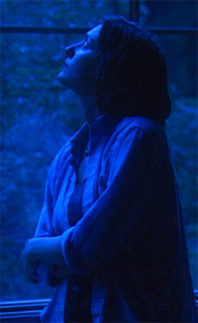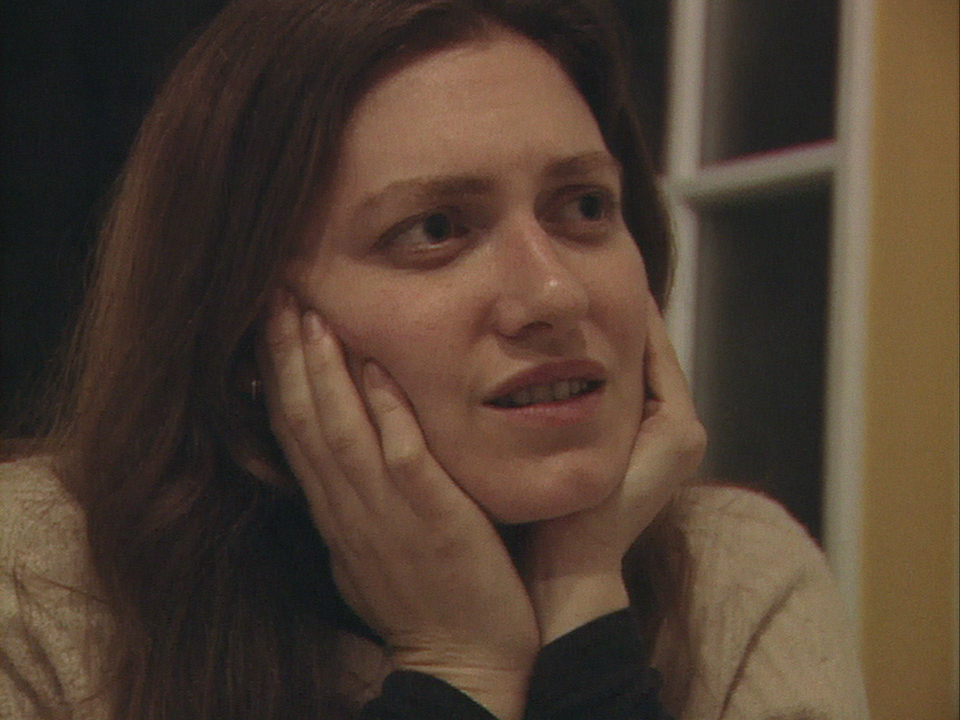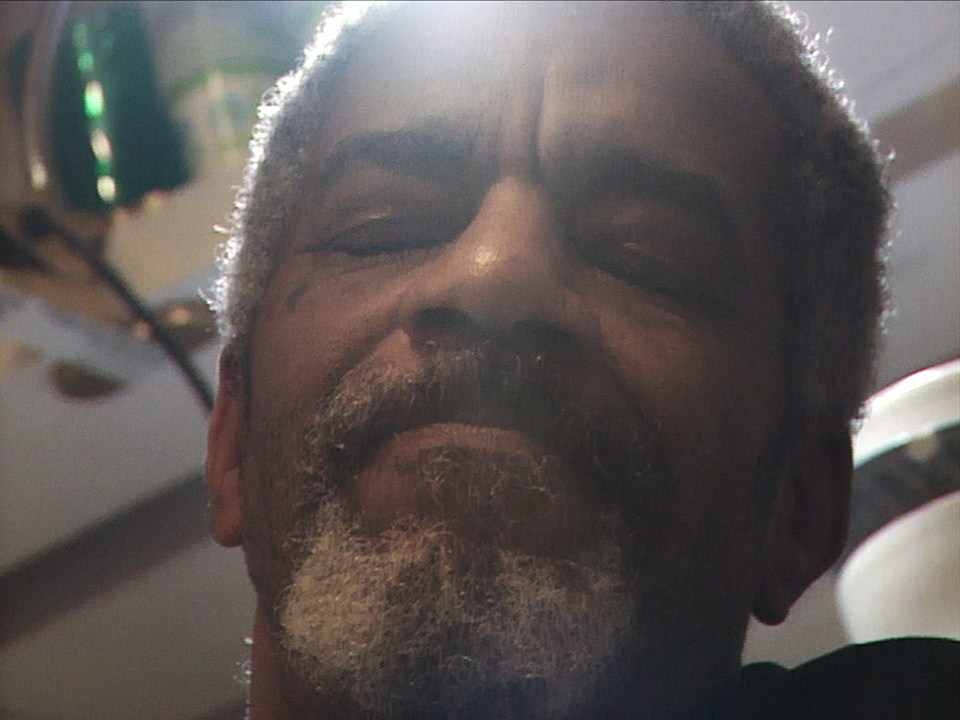
The white millennial experience is put under a fuzzy lo-fi microscope in The Plagiarists, a meta head rush of a movie that initially presents itself as a tossed-off mumblecore experiment but gradually blossoms into something stranger and far more bracingly satirical. Credited to an enigmatic director named Peter Parlow, The Plagiarists is actually the brainchild of avant-garde filmmaker James N. Kienitz Wilkins and writer Robin Schavoir, whose previous collaboration was 2017’s epic three-and-a-half-hour The Republic, a stubbornly abstract and philosophical film about an out-of-time libertarian society, played out entirely as a reading of the screenplay over an exclusively black screen. That should tip you off that this isn’t just going to be your run-of-the-mill indie comedy.
Certainly, the two protagonists of this piece are cut from the same cloth as the usual self-absorbed slacker types that have populated the mumblecore movement since its mid-2000s inception – Anna (Lucy Kaminsky) and Tyler (Eamon Monaghan), a youngish white artistic couple with a lot to say but not too much to back it up. Anna is an aspiring novelist, struggling with a personal new book that she hopes will make a statement. Tyler is a cameraman with a knowledge of film art but he traffics in corporate commercial gigs. Both clearly possess creative aspirations, but are too caught up in espousing their ideas about “art” to do anything about it. (Tyler, for example, waxes poetic at one point about the Dogme 95 movement, which he respects for its “authenticity”, a term that pretty much becomes the thesis of the film, even though he’s equally excitable about shooting an ad for a notable water brand)
At the start of the film, Anna and Tyler’s car breaks down while on a winter trip upstate New York, the looming repair costs threatening a subsequent planned trip to Costa Rica (the couple’s obsession with vacations is a humorous side note). Thankfully, a kindly black man named Clip (played, in a weirdly perfect bit of stunt casting, by notable Parliament-Funkadelic musician Michael “Clip” Payne) arrives on the scene to help. Living in a shack nearby, he offers the couple a place to stay for the night, as well as a suggestion for a cheap auto mechanic to use the next day.

Upon arriving at Clip’s home, a sense of ominousness initially sets in; alongside the fact that they’re literally taking refuge in a stereotypically scary cabin in the woods, there is also a young blond boy at the house playing iPad games in his room, whose relationship to Clip is vague. And, of course, Clip’s blackness gnaws at the pair, something that is discussed between them with the kind of “post-racial” flippancy you’d expect from people like this.
But just when you think we’re entering some kind of socially-charged variation on a film like Baghead (an early mumblecore staple from the Duplass Brothers that semi-successfully fused a slasher movie set-up with hipster meta-irony), the film goes in a different direction. Clip’s warmth and generosity extends throughout the night, even if his guests barely seem worthy of it, and he even gifts Tyler with an old-school ‘80s news broadcast camera from an impressive tech collection that he keeps in the basement. And then, as the trio drink and get to know each other over the course of the evening, Clip launches into an extended and heartfelt monologue about his childhood, something that awakens a source of powerful inspiration for Anna.
This is only the first of three acts in The Plagiarists. In the second, we jump forward in time to the summer, with Anna and Tyler once again in upstate New York to visit their friend Allison (Emily Davis) at her bougie lakeside home, a marked difference from Clip’s abode. In the midst of reading Karl Ove Knausgård’s lauded gargantuan pseudo-memoir “My Struggle”, Anna coincidentally stumbles upon the exact passage that served as Clip’s childhood story. Completely unnerved by this, Anna tries to impart why this instance of “plagiarism” is so immoral to both Tyler and Allison, neither of whom really care or see why it’s a big deal at all. Nevertheless, Anna’s world is rocked to the core and, in typical uber-liberal fashion, this trivial issue becomes the hill she’s willing to die on.

So begins a hilariously exhausting examination of the act of plagiarizing – what the definition is, who can do it, and if it really even matters anymore in an age where everybody’s already stolen everything from everybody else. In trying to retroactively condemn Clip for ruining a perceived moment of authenticity, Anna ends up revealing more about her own prejudices and artistic hang-ups, ultimately showing that her (and Tyler’s) experience reigns supreme – anybody else is there just to provide context.
Shooting on the same kind of Betamax-era cameras that Tyler becomes so obsessed with at Clip’s home, Wilkins and Schavoir interrogate the act of filmmaking itself to the nth degree, becoming the final word in navel-gazing DIY cinema. To this end, the filmmakers aren’t afraid to let artifice seep through the filmed reality, through some clever editing and structural gags – the most prominent example being that, despite sharing numerous scenes together, Clip was filmed completely independently of either Anna or Tyler and, according to press notes, he still hasn’t even met his fellow actors to this day.
As soon as the central conceit of The Plagiarists seems to be running out of steam, the film switches gears again for a melancholy and mysterious third-act coda, defiantly swapping perspectives to Allison. It’s a perplexing finale but one that spiritually sums the film up perfectly, sending us out the door endlessly wondering who’s copying who.
- Release Date: 5/5/2020

